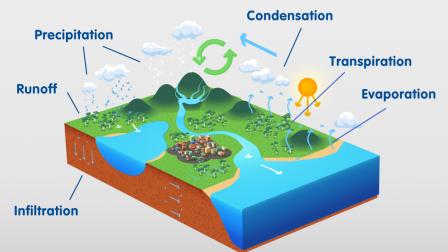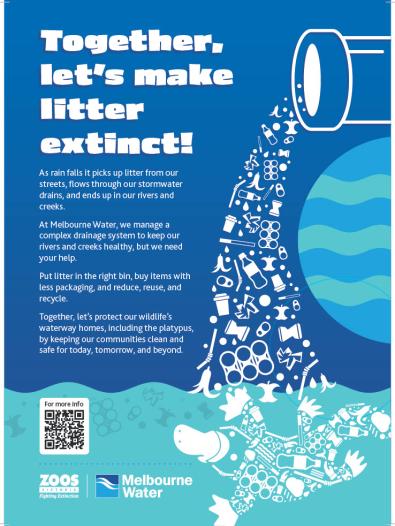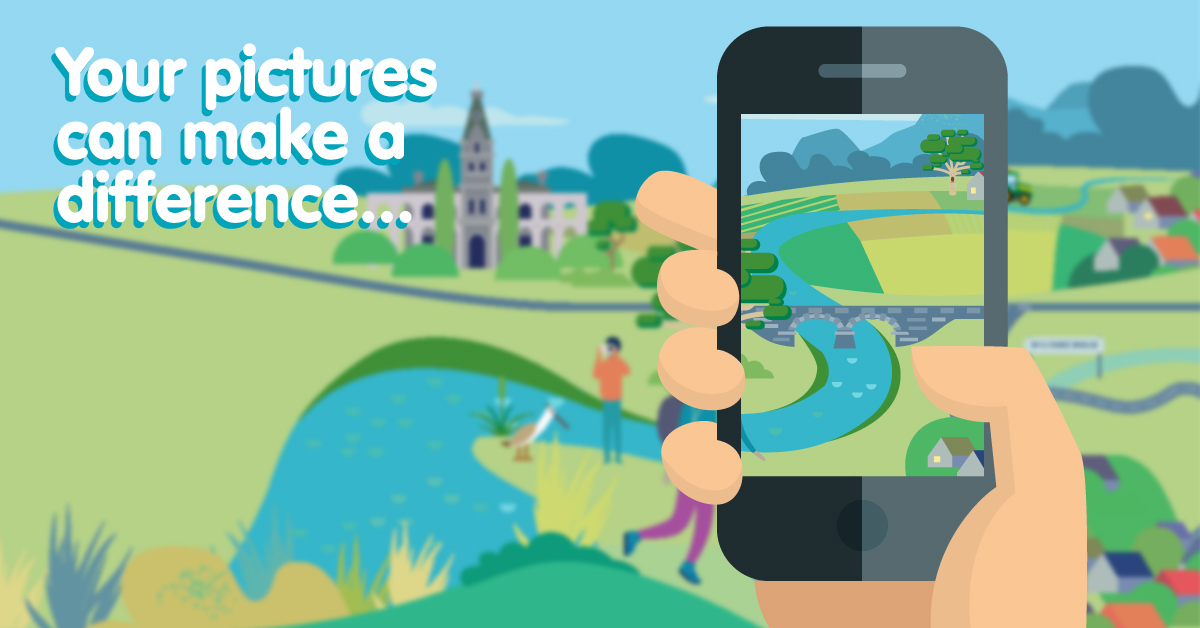As Melbourne grows, the amount of litter does too. Together, let’s make litter extinct!
We want to cut litter off at the source before it even has a chance to reach our bay and waterways. We all play a role to enjoy Melbourne’s famous lifestyle in a city of beautiful and clean rivers, creeks and surrounding open spaces.
Take action against litter
There are many ways to reduce litter, individually or as part of a community group.
Download and print your copy using the link below.
Stop litter at the source
Together we need to prevent litter from becoming an issue before it reaches our waterways and bays. Here are some simple things you can do to help:
✔️ Put litter in the bin
✔️ No bins around? Take your litter home with you
✔️ Join a community group
✔️ Participate in a clean-up day
✔️ Consider buying things with less packaging
✔️ Consciously choose to not use single-use items like cardboard coffee cups or bottles
✔️ Remember to reduce, reuse and recycle.
Get involved and make litter extinct
Plogging
Plogging is the combination of two words: 'jogging' and the Swedish phrase for pick up, 'plocka app'.
Find out more about how to set up a Plog-a-thon.
Container Deposit Scheme
You can exchange eligible drink containers for 10 cents. Together we can make a positive difference to our community and our environment by donating to the Container Deposit Scheme.
Victorians use more than 3 billion drink containers every year. Sadly, many are not recycled, ending up in landfill and as litter in local communities across our state.
Container Deposit Scheme will contribute to Victoria's target of diverting 80% of all material away from landfill by 2030 and represents a significant milestone in our journey towards a circular economy.
Join a community group
There are many local groups you can volunteer for or support as a member:
- Tangaroa Blue is a national not-for-profit dedicated to removing and preventing marine debris
- Port Phillip EcoCentre offers education programs and events on wildlife, waterways and climate
- BeachPatrol and Love Our Street volunteer groups pick up litter monthly from local areas
- Yarra Riverkeeper Association protects the Yarra, including through regular clean-up blitzes
- Werribee River Association works to protect the Werribee River and the waterways in its catchment.
Learn how to report litter or dumping
There are a few options on reporting litter or dumping to Melbourne Water:
- Complete our online request
- Request a Snap Send and Solve
- Get in touch with us by phone, mail or social media.
If we receive a request that needs to be followed up by a Local Council or another organisation we will pass on your request and will let you know.
EPA has a key role in protecting Victorians and the environment from litter. Under the Environment Protection Act 1970, littering is illegal. You can report illegal waste disposal at the EPA Victoria website. EPA officers, local government officers, police and other enforcement agencies can issue ‘on the spot’ fines for littering. Offenders can also end up in court.
LitterWatch Victoria
LitterWatch Victoria’s website provides a central location to store, interact with and extract litter data, collected from communities, organisations and government.
You may also like...
The Story of Water
Learn all about water and the water cycle with this video series.


